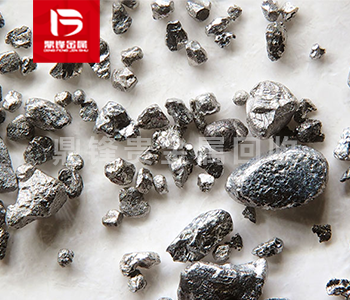
Iridium Slag Recycling
Iridium slag refers to waste or by-products produced by oxidation, impurity deposition, or other chemical reactions during the smelting, refining, or processing of iridium metal. Iridium slag usually contains small amounts of iridium metal and other impurities, such as precious metals such as platinum, palladium, and gold, oxides, sulfides, and other chemicals. Iridium slag is generally recycled through chemical treatment, dissolution, and reduction to extract iridium metal and other precious metals, and has a certain recycling value. The processing of iridium slag usually requires processes such as high-temperature smelting and acid solution leaching to maximize the recovery of valuable metals. Iridium slag is one of the very high-quality sources of iridium-containing waste recycling. Other sources of iridium-containing waste recycling include iridium water recycling, iridium powder recycling, iridium target material recycling, iridium slurry recycling, iridium carbon recycling, and iridium salt recycling.
- Parameter
- Related Questions and Answers
-
Name : Iridium Slag
-
Use : recycling
-
Application Areas : Precious metals recovery
-
Appearance and properties : Iridium Waste
-
Settlement Method : On-site payment
-
Recycling Type : Iridium recycling
-
Door-to-door recycling:worldwide
-
Customer service: Free content testing and door-to-door recycling
Product Details
Iridium slag refers to waste or by-products produced by oxidation, impurity deposition, or other chemical reactions during the smelting, refining, or processing of iridium metal. Iridium slag usually contains small amounts of iridium metal and other impurities, such as precious metals such as platinum, palladium, and gold, as well as oxides, sulfides, and other chemicals. Iridium slag is generally recycled through chemical processing, dissolution, and reduction to extract iridium metal and other precious metals, and has a certain recycling value. The processing of iridium slag usually requires processes such as high-temperature smelting and acid solution leaching to maximize the recovery of valuable metals.
Common sources of iridium slag include:
1. Smelting and refining of iridium ore: During the smelting process of iridium ore, iridium is extracted together with other precious metals (such as platinum, palladium, and gold) and impurities. Impurities, oxides, and incompletely extracted iridium metal remaining from these smelting processes form iridium slag.
2. Iridium recovery process: When other precious metals (such as platinum and palladium) are recycled, iridium is usually recovered together. Because iridium is chemically stable and rare, some of the iridium may not be completely recovered during the recycling process, especially during solvent extraction, dissolution, and high-temperature treatment, resulting in the formation of iridium slag.
3. Iridium alloy processing and processing waste: During the processing of alloys of iridium and other metals (such as rhodium, palladium), especially during smelting or refining at high temperatures, some of the iridium may react with other metals or form iridium slag due to incomplete processing. In the processing of precious metal alloys such as iridium-rhodium alloys, the residual iridium slag contains less iridium and other metals.
4. High-temperature industrial applications: In some high-temperature industrial applications, iridium and iridium alloys may undergo chemical reactions with the external environment during long-term use, producing oxides and other deposits, and iridium slag may also be formed. For example, when iridium is used as a thermocouple material, iridium slag may be formed due to long-term high-temperature exposure.
5. Use and disposal of iridium catalysts: After iridium catalysts are used in chemical reactions, iridium slag may be generated due to catalyst degradation, accumulation of reaction products, or physical damage. This type of iridium catalyst is usually used in fields such as oil refining and automobile exhaust gas treatment, and discarded catalysts often contain iridium slag.
Iridium slag is one of the very high-quality sources of recycling iridium-containing waste. Other sources of iridium-containing waste recycling include iridium water recycling, iridium powder recycling, iridium target material recycling, iridium slurry recycling, iridium carbon recycling, iridium salt recycling, etc. If you need to recycle iridium-containing waste, please call our 24-hour service hotline. Dingfeng precious metal recycling and refining manufacturers have their own recycling and refining plants without going through middlemen that create price differences, and have a professional technical team and customer service personnel to provide one-to-one service and ensure customer privacy during the recycling process.

